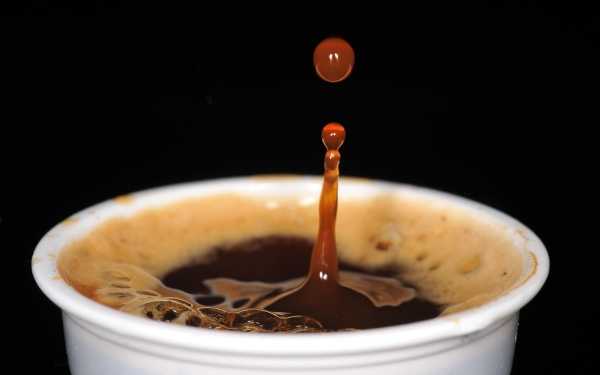As the semester continues on full steam ahead and stress brews over finals, many Bobcats turn to their drug of choice, coffee, to keep on top of the daily grind. According to a poll conducted by Harvard University, 54 percent of Americans over the age of 18 indulge in a steamy hot cup of coffee every day.
Caffeine is defined as a drug which stimulates the nervous system—in other words, it’s an energy booster helping people function. This fact raises the question: could we all possibly be addicted to that savory caffeinated beverage?
Julie Eckert, Student Health Center assistant director, said although caffeine is a stimulant, it is safe to drink in moderation.
“People usually recognize it as safe by the FDA,” Eckert said. “You can have about 300 to 400 milligrams a day, which is roughly about three cups of coffee a day. It is seen as moderate and average consumption.”
Trevor Bowersox, engineering freshman, said caffeine is a part of his daily routine.
“It’s the first thing I do in the mornings,” Bowersox said. “I go grab my cup of coffee. It just wakes me up and I feel good to go. I can’t skip on weekdays, because I feel like I’m kind of off for the rest of my day.”
Bowersox said he does not feel as if he has a dependency on caffeine, but would much rather have it than not.
“I don’t think I’m dependent,” Bowersox said. “I don’t feel like I couldn’t live without it. It’s just there to help me get through the day. I could skip my coffee on a Saturday, when I get to sleep in, and be fine.”
Eckert said it is possible to be dependent on caffeine, but it is not damaging to a person’s everyday life. Caffeine stays in a person’s system for about seven hours.
“People can have a dependency on it,” Eckert said. “They may be jittery and those kind of things, but it isn’t life threatening. Most people don’t have any kind of dysfunction from having an addiction to caffeine.”
Valerie Santamaria, interdisciplinary studies junior, said it is difficult to cope without caffeine in her system.
“I would call myself a coffee addict,” Santamaria said. “It’s so hard to go without it. Depending on the day I will drink, at the minimum, three cups. It helps me to be aware and awake. I get more work done.”
Emily Boyd, accounting sophomore, said caffeine does not wake her up, but instead makes her more tired.
“It makes me sleepy,” Boyd said. “I can’t take the bitterness, so I fill up on creamer and sugar, but I feel like it just doesn’t work, so I don’t really drink too much coffee.”
High-calorie caffeine beverages may affect a person’s sleeping pattern and stress management, Eckert said.
“It can kind of sabotage your stress management technique,” Eckert said. “Because people grab caffeine in order to concentrate, and some of those drinks have a lot of calories and sugar, it can create insomnia depending how much they’re using and how high it is in calories.”
Eckert said coffee is not addicting in the same sense as tobacco, heroin or alcohol because it does not affect a person’s mentality.
“Caffeine is just a mild form of a drug addiction—it isn’t serious like the other drugs,” Eckert said. “It’s generally recognized as safe. But if people are having issues with it, like (their sleeping habits), then they may think about cutting back.”
Santamaria said she does not see herself cutting back on her caffeine intake anytime soon.
“I love coffee,” Santamaria said. “Death before decaf, for sure. I’m probably always going to crave it.”
Denise Cervantes


















